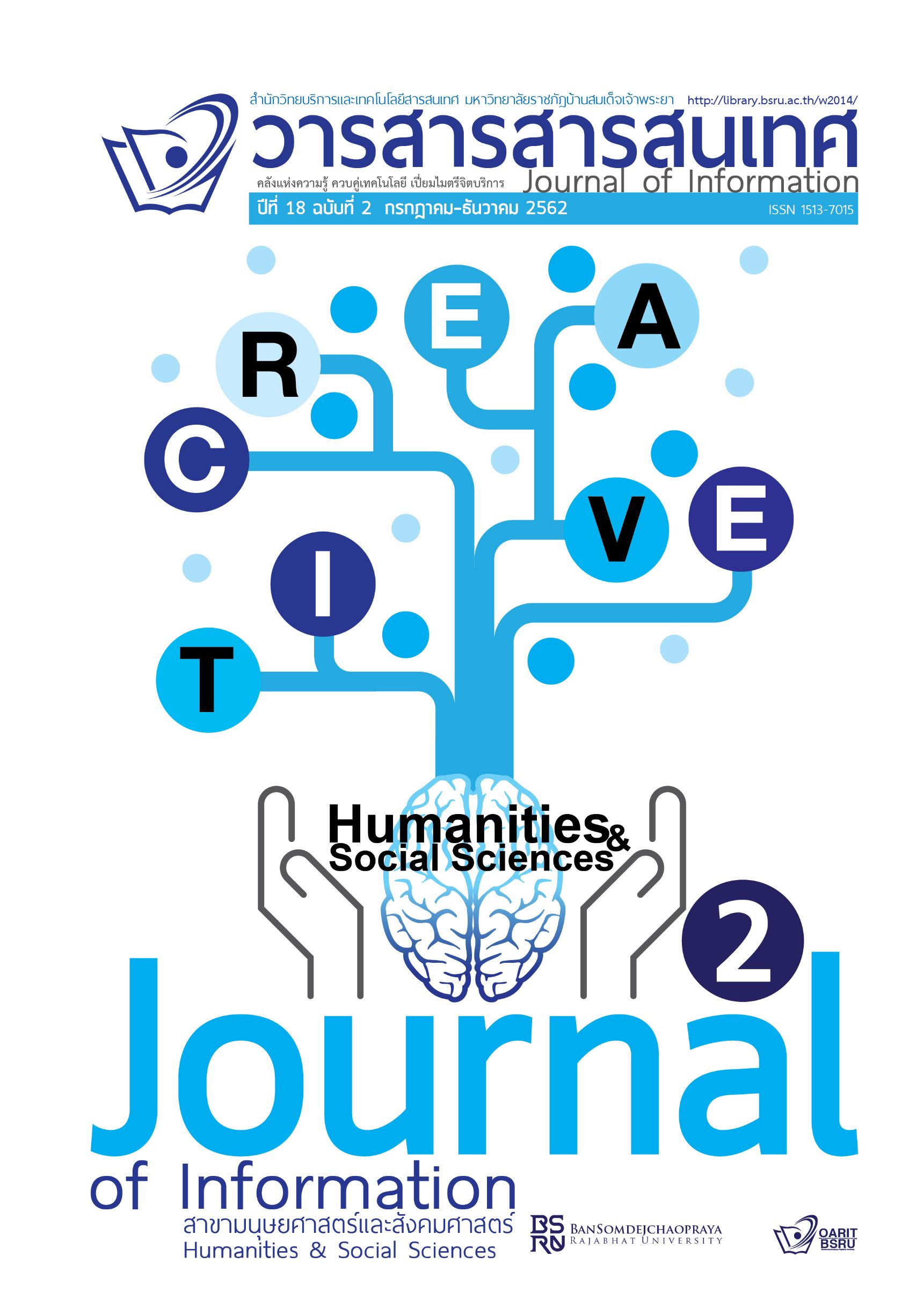Developing a Preparation Activity Approach for Language and Culture Exchange Program towards a PDCA cycle for promoting Thai Language and Cultural Learning: A Case Study of the Language and Culture Exchange Program in Indonesia
Keywords:
PCDA cycle, Language and Culture Exchange Program, IndonesiaAbstract
This research was to develop a preparation activity approach for language and culture exchange program in order to promote learning Thai language and cultures towards a PDCA cycle. The participants of this study consisted of 22 Thais in academic year 2017 and 20 Thais and 27 Indonesians in academic year 2018 respectively. A process of developing the activity approach emphasized on collecting and summarizing students’ comments and suggestions on the programme in academic year 2017 to be used to develop a plan for academic year 2018 planning framework for developing the activity approach for exchanging language and culture consisted of five facets: (1) defining timeline, (2) defining the number of participants, (3) defining responsibilities of participants, (4) defining activities relating to preparing Thai language and culture exchange, and (5) defining language training activity. The research results found that the developed activity approach used in academic year 2018 in line with such planning framework could generate designing of various Thai cultural performances. In addition, from surveying the Thai students’views in academic year 2018, it was found that the activities performed could enhance their knowledge and understanding of Thai language and culture in the highest regime and much higher than in year 2017. According to Indonesians’ views, we found that the performances based activities were able to inspire their interest and understanding of Thai language and cultures.
References
of cultural arts in learning ASEAN culture. Available at SSRN 3031737.
Dibia, I. W., Ballinger, R., & Anello, B. (2012). Balinese dance, drama & music: A guide to the
performing arts of Bali. North Clarendon: Tuttle Publishing.
Dudin, M., Frolova, E., Gryzunova, N., & Shuvalova, E. (2015). The deming cycle (PDCA)
concept as an efficient tool for continuous quality improvement in the agribusiness.
Asian Social Science, 11(1), 239-246.
Goetsch, D. L., & Davis, S. B. (2014). Quality management for organizational excellence.
New Jersey: Pearson.
Hale, C. (2019). Thai dessert cookbook: Easy and delicious thai dessertr recipes. Traverse:
Independently published.
Photikanit, K., & Sirasoonthorn, P. (2018). Reconstruction of social ideology through the
power of music: Case study of Suntaraporn band, Thailand. Kasetsart Journal of
Social Sciences, 39(2), 343-350.
Picard, M. (2012). What’s in a name? An enquiry about the interpretation of Agama Hindu
as “Hinduism”. Jurnal Kajian Bali (Journal of Bali Studies), 2(2).
Rani, M. F. A. (2018). The adaptation of buddhist art motifs as architectural ornaments in
contemporary buildings: the case study of five-star hotel lobbies in Chiang Mai.
Humanities, Arts and Social Sciences Studies, 18(3), 557-586.
Saengsawang, P., Siladech, C., & Laxanaphisuth, P. (2015). The history and development of
Muaythai boran. J. Sport Sci,3, 148-54.
Downloads
Published
Issue
Section
License
บทความ ข้อความ ภาพประกอบ และตารางประกอบที่ลงพิมพ์ในวารสารเป็นความคิดเห็นส่วนตัวของผู้นิพนธ์ กองบรรณาธิการไม่จำเป็นต้องเห็นตามเสมอไป และไม่มีส่วนรับผิดชอบใดๆ ถือเป็นความรับผิดชอบของผู้นิพนธ์เพียงผู้เดียว


